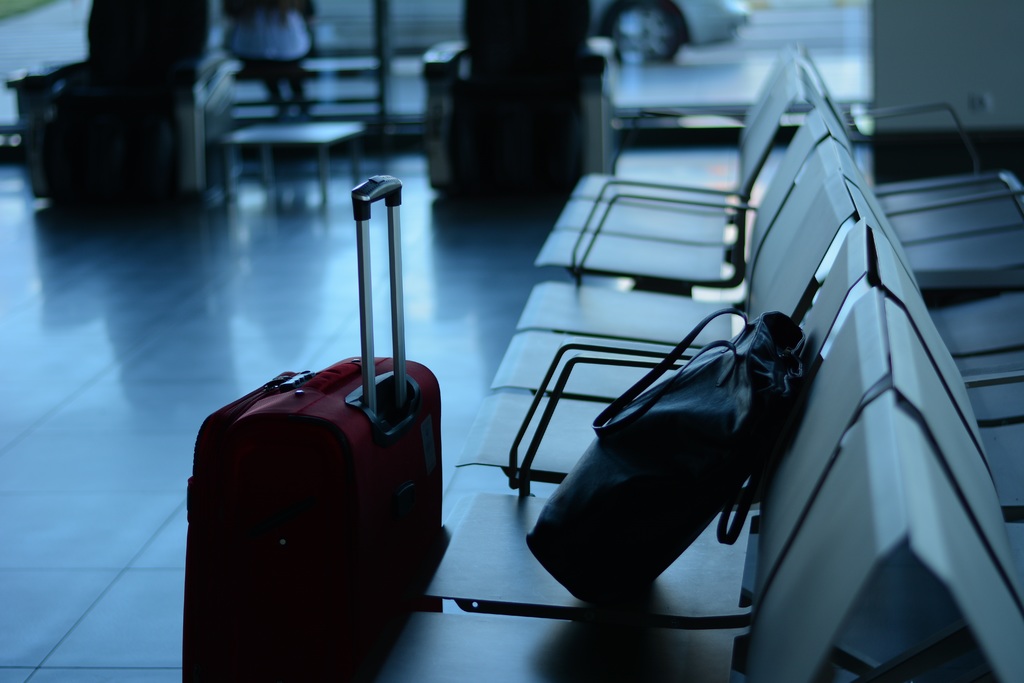The spread of coronavirus prompted a range of decisions at large and smaller insurers to address risks to their own business and to their coverage

Coronavirus has led to Lloyd's temporarily shutting its world-famous trading floor (Credit: Lloyd's)
As the UK government moves into the “delay phase” of its response to the ongoing spread of the coronavirus, insurance companies are increasingly concerned about the exposure from their coverage and the wellbeing of their staff members.
This morning (13 March), the Edinburgh Evening News reported that British multi-insurer Aegon sent home more than 1,000 people in response to a single employee testing positive for COVID-19 – the virus that causes the disease.
But while larger operations with employees numbering in tens or hundreds of thousands are unlikely to take a significant financial hit – for smaller companies like the many insurtechs active within the industry, staff absences can mean operational catastrophe unless they’re able to work from home effectively.
As the threat posed by coronavirus appears to be growing, the insurance industry has reacted in a variety of ways.
Travel insurance companies roll back coverage due to enhanced coronavirus risk
Global ratings agencies AM Best and Fitch Ratings both released reports stating that the European insurance market is well-capitalised to withstand the impact of COVID-19, including the increase in claims it’s likely to bring.
But in the face of an influx of airline-flight cancellations, major players have stopped selling add-ons for travel disruption coverage, with Bournemouth-based LV, formerly known as Liverpool Victoria, going as far as pulling its entire suite of travel insurance products out of the market.

The UK branch of French giant AXA is the latest to pull travel disruption insurance from its product line, joining a growing number that includes Aviva, InsureandGo and the Post Office.
Lloyd’s of London is ‘simulating’ a trading floor closure to stress-test coverage market amid coronavirus spread
Lloyd’s of London closed its trading floors today as part of a pre-planned response to coronavirus, preventing thousands of insurers and brokers from completing transactions the marketplace estimates as being worth £100m ($126m) face-to-face.
The company is calling the procedure is a “stress test” to the market and a “simulation” to get an insight into what might happen should the spread of COVID-19 force it to shut down face-to-face trading for a longer period of time.
As part of its protocol, the marketplace is encouraging the underwriters, brokers and managing agents that would usually enter the trading floor to conduct their business via an “alternative trading protocol”.
In practice, this means conducting more of their business electronically, which is something Lloyd’s has been encouraging anyway as part of a long-term strategy to update the capabilities of the marketplace.
A spokesperson at the firm told City AM: “This 24-hour exercise will provide valuable information on the real-life effectiveness of the protocol.”
Insurtech SMBs prepare to roll-out home working to keep coverage going amid coronavirus disruption
Although moving into the delay phase of tackling the spread of COVID-19 hasn’t yet brought social distancing measures, like the closing of schools and discouraging of large gatherings, into practice – the government has suggested that doing so is likely to be the next step.
As well as forcing Lloyd’s to shutdown its trading floor over a much longer term, small and medium-sized insurtech companies, especially those stationed in the heart of London, are preparing to roll-out their contingency plans to ensure business can continue while they follow the likely-incoming protocol.
For 35-strong start-up Wrisk – which operates a platform that allows businesses to add insurance to their chain of value – the prospect of business disruption is an inevitability.

CEO Nimeshh Patel says: “What we’re doing is putting into place procedures whereby folks can work remotely, whether that’s on the customer service side, or on the side of the software engineers we have working for us.
“Everybody has got to find ways and means of keeping productivity going in their companies, but you can’t discount that there will be some impact on it when you can’t have the in-person meetings you want to.”
In place of face-to-face discussions, Patel believes companies will be relying more on tools like Skype and Zoom.
“I’m pretty sure they’re going to see a spike,” he says.
Business interruption coverage for coronavirus
London-based insurtech, Zego, has been putting together similar plans to Wrisk, but places an emphasis on the importance of financial protection through business interruption cover, should the spread of COVID-19 have a sustained impact on its role of insuring the gig economy and new mobility marketplace.
“We have been reviewing our crisis management plans – which allow for the closure of our offices, and for all 200 Zegons to work remotely, should the need arise,” says CEO Sten Saar.
“These include business interruption coverage for a worst-case scenario.
“However, our priority is to continue with business as usual, whilst fully supporting both our policyholders and the members of our team.”
The government announced on 4 March that coronavirus was to be considered a “notifiable disease”, which it did to expand the number of businesses able to claim on their business interruption policies – but insurers were quick to point out the flaw in this logic.
AXA UK updated the “coronavirus and insurance” section of its website swiftly to include the line: “If your policy provides any infectious diseases cover, the document lists and names the diseases for which financial losses are covered.
“When the government added COVID-19 to the list of notifiable diseases, it did not change policy coverage.”
The Association of British Insurers was also quick to put out a statement to give clarity on the issue.
It said: “A small number of businesses may have cover in place that will specifically provide for business interruption arising from notifiable diseases.

“However, this type of extension is not commonly included as standard.
“Standard business insurance policies are designed and priced to cover standard risks and are therefore unlikely to provide cover for the effects of global pandemics like Covid-19.”
As always, the organisation urges businesses to check their policies or call their brokers to make sure they’re covered.
An opportunity to prove the value of digitised insurance?
While others worry about a worst-case scenario, one insurtech over in Germany believes the COVID-19 situation presents an opportunity to prove the value of digitalised insurance over traditional products.
CEO of GetSafe, a Heidelberg-based digital broking insurtech targeted at millennials, says: “The losses and costs resulting from the outbreak of coronavirus are estimated to be in the enormous sum of four trillion US dollars – but we don’t see this as reason to panic.
“Thanks to a mobile-first approach, technical infrastructure and direct sales, insurtechs are protected against the crisis.
“Crises reveal how strong a digital business model is. And coronavirus, in particular, demonstrates the extent of the technological lead over traditional insurers.”
